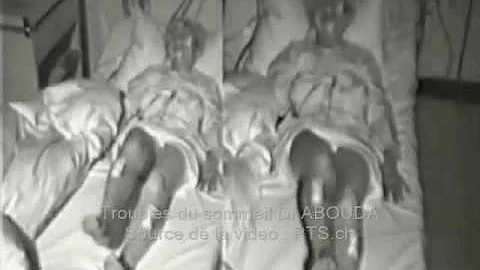What happened at the Nuremberg trials?
Table des matières
- What happened at the Nuremberg trials?
- What was the purpose of the Nuremberg trials?
- Who was killed in the Nuremberg trials?
- Who was found guilty in the Nuremberg trials?
- How many German soldiers were executed in ww2?
- Why did the Nuremberg Tribunal sentence only 11?
- Was there a jury at the Nuremberg trials?
- What counts as a war crime?
- What are the 11 crimes against humanity?
- Who has been tried for war crimes?
- What group were tried at the Nuremberg Trials?
- Who were the defendants tried at the Nuremberg Trials?
- What were the outcomes of the Nuremberg Trials?
- Who was acquitted at Nuremberg?

What happened at the Nuremberg trials?
The trials uncovered the German leadership that supported the Nazi dictatorship. Of the 177 defendants, 24 were sentenced to death, 20 to lifelong imprisonment, and 98 other prison sentences. Twenty five defendants were found not guilty. Many of the prisoners were released early in the 1950s as a result of pardons.
What was the purpose of the Nuremberg trials?
Held for the purpose of bringing Nazi war criminals to justice, the Nuremberg trials were a series of 13 trials carried out in Nuremberg, Germany, between 19.
Who was killed in the Nuremberg trials?
Ten prominent members of the political and military leadership of Nazi Germany were executed by hanging: Hans Frank, Wilhelm Frick, Alfred Jodl, Ernst Kaltenbrunner, Wilhelm Keitel, Joachim von Ribbentrop, Alfred Rosenberg, Fritz Sauckel, Arthur Seyss-Inquart, and Julius Streicher.
Who was found guilty in the Nuremberg trials?
The Nuremberg trials
- Martin Bormann – Guilty, sentenced in absentia to death by hanging. ...
- Karl Dönitz – Guilty, sentenced to 10 years' imprisonment.
- Hans Frank – Guilty, sentenced to death by hanging.
- Wilhelm Frick – Guilty, sentenced to death by hanging.
- Hans Fritzsche – Acquitted.
How many German soldiers were executed in ww2?
According to postwar German estimates, more than 35,000 soldiers were convicted by military courts of leaving their units during the course of the war. Some 23,000 were sentenced to death, and at least 15,000 of these were actually executed.
Why did the Nuremberg Tribunal sentence only 11?
The Allies did not want to be harsh on the defeated Germany as they had been after World War I.
Was there a jury at the Nuremberg trials?
Rather than use a single judge and jury, the trial of high-ranking Nazi leaders was conducted by a panel of four judges. The United States, Soviet Union, France and Great Britain each supplied a main judge and an alternate, and Britain's Lord Justice Geoffrey Lawrence presided.
What counts as a war crime?
A war crime occurs when superfluous injury or unnecessary suffering is inflicted upon an enemy. War crimes also include such acts as mistreatment of prisoners of war or civilians.
What are the 11 crimes against humanity?
Crimes against humanity under international law
- Murder.
- Extermination.
- Enslavement. Deportation or forcible transfer of population.
- Imprisonment.
- Torture.
- Sexual violence.
- Persecution against an identifiable group.
- Enforced disappearance of persons.
Who has been tried for war crimes?
Among the accused were the Nationalist Socialist leaders Hermann Göring and Rudolf Hess, the diplomat Joachim von Ribbentrop, the munitions maker Gustav Krupp von Bohlen und Halbach, Marshal Wilhelm Keitel, Grand Admiral Erich Raeder and 18 other military leaders and civilian officials.
What group were tried at the Nuremberg Trials?
- Eleven subsequent trials were held in Nuremberg between 19. In these the Allies tried Nazi physicians, commanders of the Einsatzgruppen, officials of the Reich Ministry of Justice, judges of the Special Nazi Courts and other senior members of the Nazi party.
Who were the defendants tried at the Nuremberg Trials?
- The defendants were 177 high-ranking physicians, judges, industrialists, SS commanders and police commanders, military personnel, civil servants, and diplomats. The trials uncovered the German leadership that supported the Nazi dictatorship.
What were the outcomes of the Nuremberg Trials?
- A: The direct result of the Nuremberg Trials was the prosecution and sentencing of World War II Nazi officials for war crimes. Of the 24 Nazi defendants, 12 were given death sentences, three were sentenced to life imprisonment, four received prison sentences of varying lengths, three were acquitted and two did not stand trial.
Who was acquitted at Nuremberg?
- Answer Wiki. Of the 22 defendents in the main Nuremberg trial, only three were acquitted - Hjalmar Schacht (economics minister), Franz von Papen (German politician who played an important role in Hitler's appointment as chancellor), and Hans Fritzsche (head of press and radio under Goebels ).













